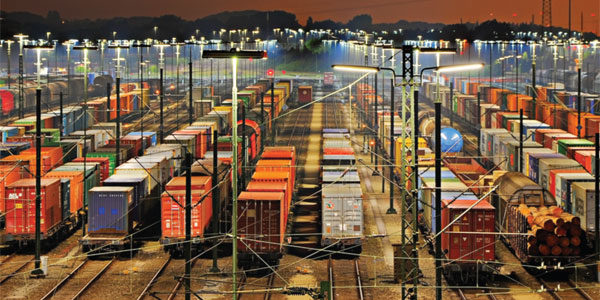Judge grants class status to shippers in five-year rail surcharge imbroglio

In a decision that could cost the railroad industry billions of dollars, a federal district judge has granted class certification to a lawsuit alleging that the four major U.S. railroads conspired for five years to fix the prices of fuel surcharges imposed on shippers.
A class-certification ruling is significant in that it centralizes all plaintiff claims into one consolidated case rather than forcing each individual plaintiff to bear the time and cost burdens of litigating its own case. It also makes the economics of winning more compelling for plaintiffs' attorneys.
The ruling, issued late Friday in Washington, D.C., by Federal District Judge Paul L. Friedman, is a legal victory for the eight shippers seeking class certification for their claim. The shippers allege that, from mid-2003 through 2008, Burlington Northern Santa Fe Railway, Norfolk Southern Corp., CSX Corp., and Union Pacific Corp. colluded to set rail rates on unregulated shipments through a coordinated effort to set fuel surcharges that would appear on their customers' bills.
The shippers also charge that the fuel surcharge levels often exceeded the pace of the fuel-cost increases absorbed by the railroads. The result was that the industry collected billions of dollars in excess revenues, according to plaintiffs' attorneys.
The railroads have strongly denied the charges, a position that has remained constant since the first shipper lawsuit was filed in 2007. They maintain that the nation's rail system is an integrated network and they need some latitude to discuss joint pricing and routing actions to facilitate interline movements, a practice considered beneficial to shippers and the economy.
William Greene, lead transport analyst for Morgan Stanley & Co., surmised in a research note published today that the railroads will argue that any "appearance of collusion in this case is merely the result of co-ordinated joint pricing mechanisms" of which the fuel surcharges are a portion.
The defendants control an estimated 90 percent of all U.S. rail traffic. The ruling does not affect Kansas City Southern Inc., which is one of the seven so-called Class I American railroads but does not have the geographic footprint of the four defendants. Likewise the two Canadian railroads—Canadian National and Canadian Pacific—as well as U.S. short line railroads, are not parties to the case.
Judge Friedman has given the parties until July 10 to appeal the ruling. In his decision, the judge included an opinion that has been sealed due to confidentiality concerns. The railroads are expected to ask that the opinion be kept under seal. The parties may also ask for an extension of the July 10 deadline so they can continue negotiations.
Holly Arthur, a spokesperson for the Association of American Railroads (AAR), said the group is not involved in the case and had no comment. Executives at the railroads could not be reached for comment at press time.
Cost estimates in billions
Estimates of potential damages vary all over the place. Investment firm Wolfe Trahan & Co. said in a research note published
this morning that attorneys have set the potential liability at $30 billion, based on $7 billion for fuel-surcharge recovery and up to three
times that amount for punitive damages. However, the firm said it disagrees with that estimate, adding its internal analysis
suggests the railroads did not "over-recover" their fuel costs during the five-year period.
Morgan Stanley said shippers might seek at least $10 billion in damages. While that figure "may strike us as absurdly high," the firm said that there is no way to determine what amount the damages would be set at in out-of-court settlement or if the case went to trial.
The firm said that estimates from attorneys not involved in the case put the cost to the industry for an out-of-court settlement at between $500 million and $2 billion.
Roots of the lawsuit
Prior to 2007, railroads customarily applied fuel surcharges to their base rates. That year, the Surface Transportation Board
(STB), the federal agency overseeing the rail industry, ruled that the carriers must base fuel surcharges on their operating costs,
not on revenues derived from their services. From that decision, the railroads changed their practice to impose fuel surcharges
based on miles travelled rather than revenue generated.
Although the STB ordered the railroads to change their processes, it offered shippers no mechanism for recapturing any past fuel surcharges that may have been higher than the fuel costs incurred by the carriers.
And in language that effectively triggered the five-year legal battle, the agency said its jurisdiction in the matter applied only to shipments moving under a regulated tariff. As a result, the charges imposed on shipments moving under contract—and thus outside the province of the STB—could be challenged in federal court under antitrust laws.
Related Articles

Copyright ©2024. All Rights ReservedDesign, CMS, Hosting & Web Development :: ePublishing